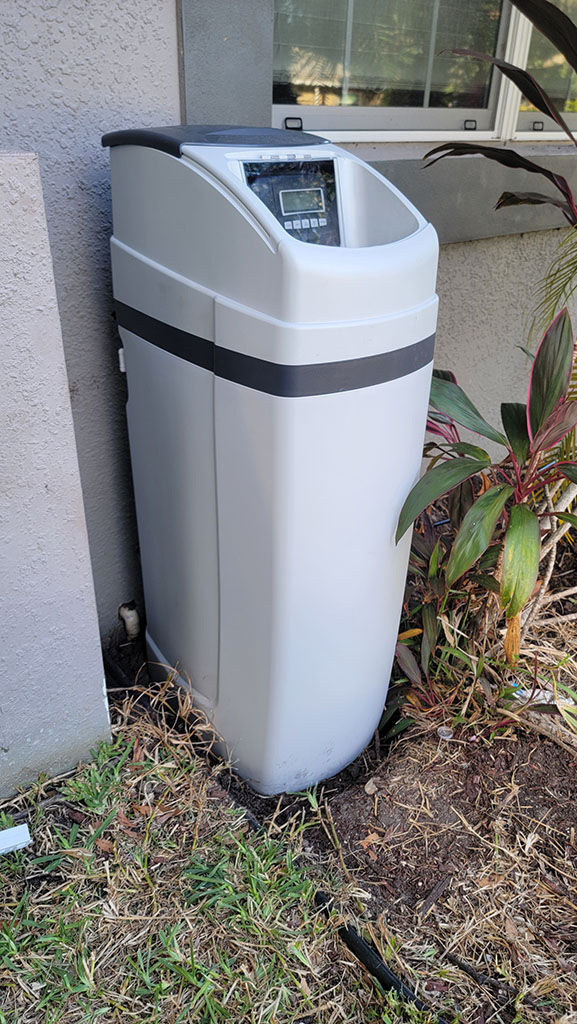Do I Need a Water Softener in Tampa, Florida?
- Eli G

- Jun 13, 2023
- 4 min read
Updated: Aug 6, 2025

Living in Tampa, Florida, means enjoying beautiful weather, stunning beaches, and a vibrant lifestyle. However, one aspect that many residents face is the issue of hard water. If you're wondering whether you need a water softener in Tampa, this article will provide insights into the impact of hard water in the area and help you make an informed decision.
Understanding Hard Water in Tampa
Tampa, like many other regions in Florida, has a moderately high level of water hardness. Hard water occurs when minerals such as calcium and magnesium dissolve in the water supply. These minerals are harmless to our health but can lead to various challenges within our homes.
The Signs of Hard Water
Scale Build-up: One of the most noticeable effects of hard water is the formation of scale deposits on faucets, showerheads, and appliances. Scale build-up can reduce water flow, clog pipes, and require frequent cleaning.
Soap Scum and Residue: Hard water reacts with soap, creating a sticky residue known as soap scum. This residue can be challenging to clean, leading to a dull appearance on bathroom fixtures, glassware, and dishes.
Dry Skin and Hair: The mineral content in hard water can strip away natural oils from your skin and hair, leaving them feeling dry, itchy, and lacking moisture.
Stiff and Faded Laundry: Hard water can affect the performance of laundry detergents, resulting in stiff and faded clothes over time. It can also make it difficult to fully remove stains and achieve bright whites.
Benefits of a Water Softener in Tampa
Scale Prevention: Installing a water softener in your Tampa home can significantly reduce the mineral content in your water, preventing scale formation on fixtures, appliances, and pipes. This helps extend their lifespan and reduces maintenance costs.
Cleaner and Shiner Surfaces: Softened water enables soaps and cleaning products to lather more effectively, resulting in cleaner surfaces with reduced soap scum and residue.
Healthy Skin and Hair: By removing the minerals responsible for dryness and irritation, water softeners can improve the condition of your skin and hair, leaving them feeling softer and more hydrated.
Longer-Lasting Clothing: Softened water allows laundry detergents to work more efficiently, resulting in brighter, softer, and longer-lasting clothes. Fabrics retain their color and texture, reducing the need for excessive fabric softeners.
Considerations for Installing a Water Softener
Water Hardness Level: While Tampa has moderately hard water, it's still essential to determine the exact hardness level of your water supply. A professional water test can provide accurate information to help you choose the right water-softening system.
Environmental Impact: Traditional salt-based water softeners regenerate using salt, which produces brine waste. If you have environmental concerns, you may explore alternative options such as salt-free or electronic descaling systems.
Budget and Maintenance: Consider the upfront cost of purchasing and installing a water softener, as well as ongoing maintenance expenses. It's important to choose a reputable brand and ensure regular maintenance to keep the system functioning optimally.
Environmentally-Friendly Options for Water Softening
While conventional salt-based water softeners prove effective, they raise environmental concerns due to the generation of brine waste during the regeneration process. For Tampa residents prioritizing environmental responsibility, Aquawise offers alternative options.
These solutions deliver efficient water softening without the environmental impact associated with salt-based methods. Factor in the ecological aspects along with your water softening needs when choosing the right Aquawise system for your home.
Conclusion
Living in Tampa, Florida, exposes residents to the effects of hard water. While not a health risk, hard water can cause scale build-up, soap scum, dry skin, and laundry issues. Installing a water softener can address these challenges and provide numerous benefits, including scale prevention, cleaner surfaces, healthier skin and hair, and longer-lasting clothing.
When considering a water softener for your Tampa home, evaluate the hardness level of your water, environmental factors, and your budget. Consulting with a water treatment professional can help you determine the hardness level of your water,
FAQs: Water Softeners in Tampa, Florida
Why is hard water a concern in Tampa, Florida?
Hard water in Tampa contains elevated levels of minerals like calcium and magnesium, leading to issues such as scale build-up, soap scum, and dry skin. Understanding these concerns is crucial for making informed decisions about water treatment.
What are the noticeable signs of hard water in a Tampa home?
Hard water manifests through scale deposits on faucets and appliances, soap scum on surfaces, and dry skin and hair. Recognizing these signs helps residents identify the impact of hard water on their daily lives.
How can a water softener benefit residents in Tampa?
A water softener in Tampa can prevent scale formation, resulting in cleaner surfaces with reduced soap scum, and contribute to healthier skin and hair. It can also enhance the performance of laundry detergents, leading to longer-lasting and brighter clothes.
What factors should be considered before installing a water softener in Tampa?
Residents should assess the hardness level of their water through professional testing. Additionally, consideration should be given to the environmental impact of water softening methods, budget constraints, and ongoing maintenance expenses.
Are there environmentally friendly options for water softening in Tampa?
Yes, for those concerned about environmental impact, Aquawise offers alternative water softening solutions in Tampa. These options provide efficient water softening without the ecological drawbacks associated with traditional salt-based systems. Residents are encouraged to factor in both water-softening needs and environmental considerations when choosing a system.
Related Articles:




Comments